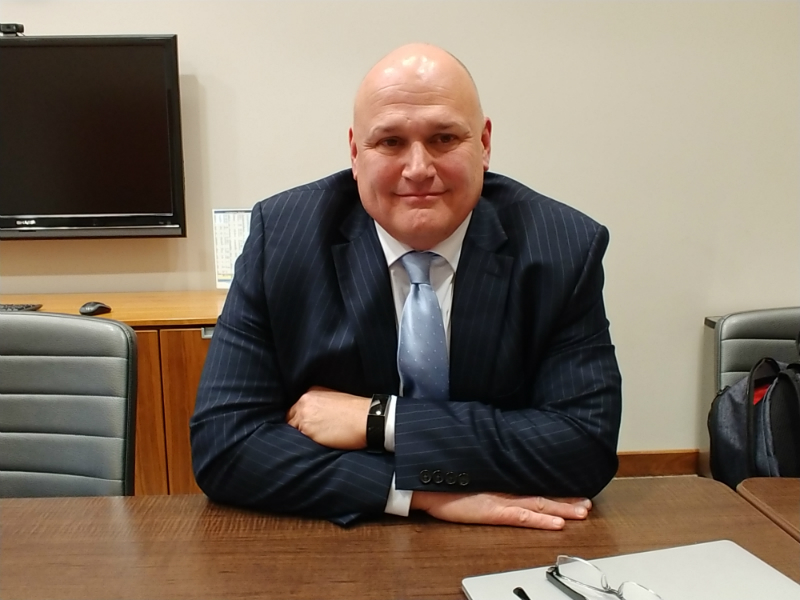The attack on the Tree of Life synagogue in Pittsburgh was not just a tragedy, but could well mark a watershed event for U.S. Jews, according to the man charged with overseeing community security in that American city.
Bradley Orsini, director of community security for the Jewish Federation of Greater Pittsburgh, said the attack on the synagogue, in which an alleged white supremacist killed 11, did not come as a complete surprise to those who have been monitoring the growth of anti-Semitism in the United States.
Law enforcement and anybody involved in community security have seen an increase in radicalism in the last few years, as well as a growth in hate speech, he said, adding that the Pittsburgh attack was “a wake-up call.”
“Hate speech can often lead to hate crimes,” he said. “In some regards, hate speech has almost been normalized. It’s a horrible thought, but we see so much of it now,” he said.
Orsini, a former member of the FBI, was in Toronto on Dec. 4, to address a gathering of 90 law enforcement representatives and first responders from Toronto and York Region, and to exchange ideas on best practices.
Later in the day, Orsini, who was brought in as a guest of the UJA Federation of Greater Toronto, briefed about 100 Jewish community leaders about the lessons learned from the Tree of Life attack in Pittsburgh.
On Oct. 27, 2018, an armed gunman attacked the synagogue during Shabbat services. The shooting was the worst such incident targeting American Jews, and was followed by another deadly incident in April 2019 in Poway, Calif. (one killed, three wounded) and on July 28, 2019, outside a synagogue in Miami Beach (one person was wounded).
Orsini said communities cannot rely exclusively on law enforcement to protect them. They have to be vigilant, protect themselves and put in place protocols to mitigate the impact of hate attacks.
Orsini said his message was about “what we can do as a community to diminish this threat – we can’t stop them – and in the case of the worst possible scenario, how to survive.”
“For our community, it is important to understand that we are our own security in our facilities,” Orsini said. “We need to do a better job protecting ourselves.”
To that end, the Pittsburgh federation has allocated $625,000 to put all community organizations, large and small, “on an equal playing field” when it comes to basic security measures. That includes the installation of reinforced doors, security cameras, access control systems and panic buttons that send an emergency message to local law enforcement.
In addition, community employees receive training so they are prepared in the event of an incident. The three-word mantra taught to those who might face an attack are “run, hide, fight,” said Orsini.
Jewish community members must also have situational awareness, he said, explaining that if something looks out of place, it shouldn’t be ignored. “See something, say something” should be everyone’s approach to events or people that are out of the ordinary at communal buildings, Orsini said.
Jewish organizations in Pittsburgh regularly receive hate materials, he added. These shouldn’t be ignored, but rather, law enforcement agencies should be made aware of them.
Jews are the single most targeted religious group in the United States, Orsini said. Vigilance and training can help mitigate the effects of attacks, if and when they take place.
